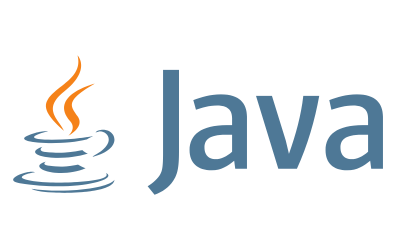Full Stack Java
- Expert-led Training
- Real-time Projects
- Career Transformation & Guidance
- 24/7 Support

About Full Stack Java
Full stack Java course is designed to provide comprehensive training on the front-end and back-end technologies used in web development using Java. It equips students with the skills required to build dynamic, interactive web applications from scratch. This course covers the entire web development process, from designing and implementing user interfaces to integrating databases and building server-side applications. It prepares students to become proficient full stack developers capable of designing, developing, and deploying robust web applications using Java technologies in real-world scenarios.
Careers
A Full Stack Java course opens up several career opportunities for students. After completing this course, students can apply for roles such as Full Stack Developer, Java Developer, Web Application Developer, Software Engineer, and more. These roles require proficiency in Java programming, front-end development, back-end development, and database management, which are all covered in this course.
Full Stack Java developers are in high demand in the IT industry, with companies of all sizes seeking professionals with knowledge of Java and full stack development. Students can find employment in a variety of industries such as finance, healthcare, e-commerce, and technology. This course provides students with the necessary skills to succeed in the industry and opens up a wide range of career opportunities.
Job Oppurtunities
- Full Stack Developer
- Java Developer
- Web Developer
- Software Engineer
- Application Developer
- Frontend Developer
- Backend Developer
- Solutions Architect
What You will Learn
- Introduction to Full Stack Java: In this section, you will learn about Full Stack Java and its importance in modern web development. You will understand the various components of Full Stack Java and how it can help organizations with developing scalable and robust web applications. You will also learn how to set up a development environment for Full Stack Java and explore its features.
- Java Fundamentals: In this section, you will learn the basics of programming with Java. You will understand concepts such as variables, data types, operators, and control structures. You will also learn how to write and execute Java programs using an IDE (Integrated Development Environment).
- Front-End Development: In this section, you will learn how to use Full Stack Java for front-end web development. You will understand how to create web pages using HTML, CSS, and JavaScript. You will also learn how to use front-end frameworks such as Angular and React for building responsive and dynamic web applications.
- Back-End Development: In this section, you will learn how to use Full Stack Java for back-end web development. You will understand how to create RESTful APIs using frameworks such as Spring Boot and Hibernate. You will also learn how to use databases such as MySQL and MongoDB for storing and managing data.
- DevOps: In this section, you will learn how to use Full Stack Java for DevOps tasks such as deployment, testing, and automation. You will understand how to use tools such as Jenkins, Docker, and Kubernetes for building and deploying web applications.
- Real-World Examples: In this section, you will analyze real-world examples of successful Full Stack Java implementations and understand the benefits it brings to businesses. You will learn how to apply Full Stack Java to solve real-world business problems and how to create web applications that provide valuable insights and automation.

